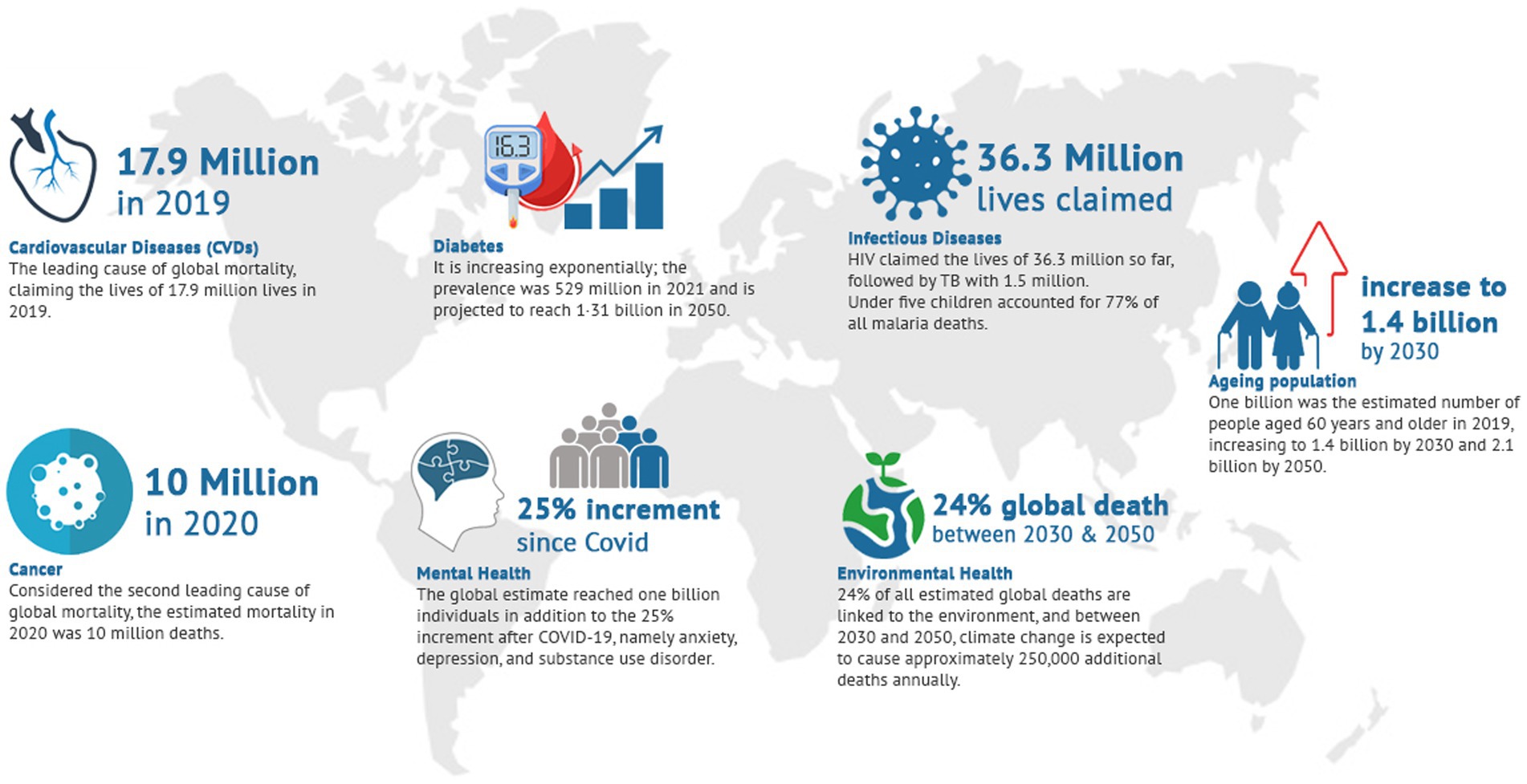
Introduction
In the era of the digital revolution, the expansion of artificial intelligence (AI) has emerged as a powerful tool to address global health challenges. With the rapid production and accessibility of health-related data, AI has the potential to change the field and mitigate the impact of various health issues. This article explores the relevance of AI in contemporary public health and its potential to strengthen global health through personalized healthcare and improved preparedness and response to future challenges. The core aspect this article unpacks is how is AI addressing global challenges.
AI Applications for Global Health Challenges
AI has the capability to understand complicated health and medical data, enabling it to perform various functions and deep-learning strategies. By harnessing its capabilities, AI can address leading global health challenges such as mental health, climate change, cardiovascular diseases, diabetes, infectious diseases, health systems, and population aging. Through computational models and algorithms, AI can provide insights and solutions to these challenges, ultimately improving health outcomes worldwide.
Strengthening Global Health through Personalized Healthcare
One of the key benefits of AI in healthcare is its ability to provide personalized healthcare. By analyzing vast amounts of data, AI can predict outcomes, mine data for valuable insights, and tailor treatment plans to individual patients. This holistic approach enhances primary healthcare systems, enabling better outcome prediction, data mining, and personalized treatment. AI can also improve health communication by analyzing online health information and providing personalized messaging to influence individuals’ health behaviors. This technology-driven approach amplifies the effectiveness of health interventions and improves patient-provider communication.

Ethical and Legal Considerations
While AI holds immense potential in addressing global health challenges, ethical and legal concerns must be addressed for effective implementation. Privacy and autonomy of individuals and communities are paramount, and safeguards must be in place to protect them. The EU AI Act, the first comprehensive regulation addressing the risks of AI, aims to ensure better conditions for developing and using this innovative technology. Additionally, researchers are urged to provide more transparency and explainability in AI applications to avoid hindering its potential in healthcare. Explainable AI (xAI) is an approach that promotes human-interpretable AI-based applications, fostering trust and understanding.
Conclusion
Artificial intelligence has the power to inform global health by addressing various challenges and strengthening healthcare systems. Through personalized healthcare, improved communication, and better prediction and response to health issues, AI can significantly improve health outcomes worldwide. However, ethical and legal considerations must be put into place for efficient and transparent frameworks for AI.
